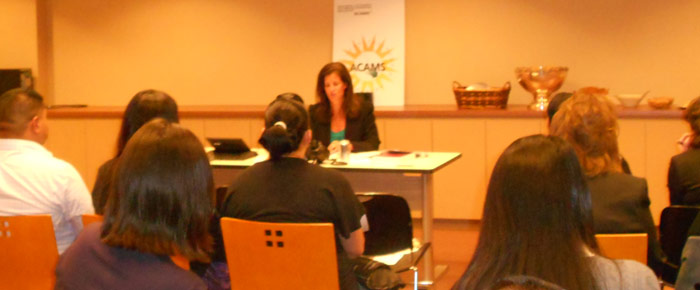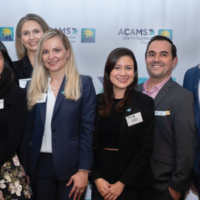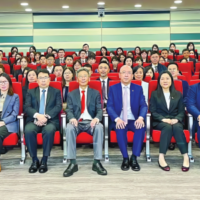
"They (TD Bank) were assisting me in putting fake balance statements into the hands of my investors," said Scott Rothstein, according to a transcript of a deposition taken in December 2011 as part of Rothstein's former law firm's bankruptcy case. – Bloomberg (December 23, 2011). The $1.2 billion Ponzi scheme that was operated by Mr. Rothstein is one of the largest frauds in South Florida history.
The most recent learning event in April 2012 of the ACAMS Southern California Chapter, "Ponzi Schemes – What Financial Institutions Can Do to Avoid Liability and Recover Losses," provided its attendees timely and useful information relating to the warning signs and red flags suspicious activity. Also covered was the importance of your institution's response to those red flags; the potential for liability; what defenses can financial institutions establish to avoid liability; and where a financial institution can look to recover its own losses. California Credit Union hosted the event at its location in Glendale, California.
Keynote speaker, Kathy Bazoian Phelps, a partner at Danning, Gill, Diamond & Kollitz, LLP (Century City, Los Angeles), has over twenty years of experience in handling all aspects of business bankruptcy matters. She has been lead counsel in large-scale litigation involving recovery of assets in Ponzi scheme cases, which leading to her co-authoring The Ponzi Book: A Legal Resource for Unraveling Ponzi Schemes, described at www.theponzibook.com.
Ms. Phelps engaged the audience in an in-depth discussion of due diligence techniques including investigating the customer's auditor and conducting negative news searches. She stressed the importance of verifying the authenticity of the audited financial statements to ensure you are not in receipt of "forged" financials as well as not relying on carefully crafted and well-presented marketing materials in your review. Also, does the business model make sense? Is there a need for investor funds? A plausible, sustainable investment strategy? Independently, verifiable performance? Any unusual legal provisions? Who are the principals? Are there multiple levels of corporate ownership? Affiliated companies in the same business? Your financial institution should conduct the appropriate due diligence and have a comfort level with the answers to these questions before moving forward.
She went on to stress the importance of recognizing the red flags and taking the appropriate action, the failure of which can lead to Bank Secrecy Act violations, lawsuits against the financial institution for aiding and abetting, and breach of fiduciary duty. Red flags include, but are not limited to: funds transferred to/from financial secrecy haven, unusual transfer of funds between related entities, customers reluctant to comply with reporting requirement, diversion of funds to personal accounts, irregular documentation, discovery of prior criminal history of principal, bank employees working at customer's company, and personal or business ties between the financial institution and the customer.
The presentation, handout and keynote speaker's bio can be found on the chapter's LinkedIn page. If you are not a current member of the chapter's LinkedIn webpage, please log into http://www.linkedin.com, click Groups, and search for ACAMS Southern California Chapter. Upon approval of your request for membership, you will have access to the documentation.
The chapter is looking forward to its next event, "Protecting Your Institution from Trade-Based Money Laundering," which will be held on Thursday, July 26th, at the World Trade Center in Long Beach, California. The seminar will be presented by subject-matter expert in the Financial Crimes Homeland Security Investigations Unit at the Department of U.S. Customs & Immigration Enforcement.










